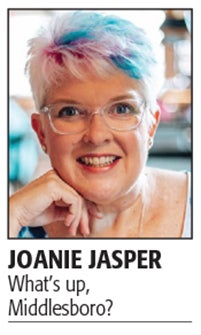Ending the culture of silence around sexual assault
Published 11:41 am Saturday, October 28, 2017
By now the sordid details of Harvey Weinstein’s alleged sexual assaults on numerous actresses and models, first reported in the New York Times and The New Yorker, are well-known.
What is now the subject of much angst and analysis is how to end the culture of silence that enabled the famous producer to get away with such appalling behaviour for three decades.
As it turns out, Weinstein was the proverbial wolf in sheep’s clothing. Even as he demeaned women he was hiding out in plain sight among rich and famous actors, producers and politicians playing the role of a liberal and — brace yourself — a feminist.
Consider the irony that his Weinstein Company once distributed a documentary, The Hunting Ground, on campus sexual assault. Or that he and his family have contributed more than $1.4 million to the Democratic Party since 1992, including $46,350 to Hillary Clinton. Or that he employed Malia Obama, daughter of former president Barack Obama, as an intern. Or that he helped endow a university chair in the name of Gloria Steinem.
All the while, as at least 32 women, including Angelina Jolie and Gwyneth Paltrow, now publicly attest, he was luring women to hotel rooms on the pretext of having a business meeting and attacking them in a disgustingly abusive manner. At least three of his accusers allege he raped them, including actress Rose McGowan who has taken to Twitter to out him. (Weinstein doesn’t deny the encounters, only “any allegations of non-consensual sex.”)
Most disturbingly, we now know these allegations are likely only the tip of the iceberg because of the culture of silence that surrounds sexual assault.
What this story, then, is really about is a society where money and power can still buy silence and with it indemnity and, ultimately, impunity.
Not only has that old saw of the “casting couch” not changed in 2017, some might argue the working world is becoming more dangerous for women as lawyers create legal walls that the powerful can hide behind.
That must end. And a close look at how Weinstein — and others like him — create that cone of silence should help pave the way to prevent future predatory acts by the powerful.
First, his board of directors (they were all men at The Weinstein Company) did not act on allegations of sexual harassment that came to their attention. Second, the company’s human resources department existed to protect managers, not employees. Third, lawyers silenced employees with non-disclosure agreements, victims with gag-settlements, and Weinstein intimidated those who might still be thinking of protesting with threats of expensive lawsuits and ruined careers.
Sadly, The Weinstein Company is not alone in covering up salacious behaviour among its top executives and talent. Earlier this year the New York Times revealed that Fox News not only stood by TV anchor Bill O’Reilly as he faced a series of allegations of sexual harassment, but it made some of the payouts to women in exchange for them agreeing not to pursue litigation or speak about the accusations. Two of those payouts came after Fox dismissed CEO Roger Ailes for sexual harassment and claimed it would not tolerate that behavior in others.
Finally, the legal system too often keeps women from speaking out for fear they won’t be believed. Even when there was a tape, as there was with Weinstein from a 2015 sting operation, prosecutors failed to go after him.
Still, since the revelations first appeared in the Times, actions have been taken that are cause for hope.
Weinstein has been fired by the late-to-act remaining directors at The Weinstein Company, his wife, Georgina Chapman, has left him and taken their kids, he has been publicly condemned by actors like George Clooney and politicians like Hillary Clinton, and companies including Apple and Amazon are cutting ties with him and his company. And police in New York and London are reopening investigations to see if charges should be laid against him.
So will the “outing” of Weinstein make a difference to a woman’s right to work without fear of sexual harassment or assault?
Happily, yes. First, there is a snowball effect from women, like McGowan, who refuse to be intimidated or shamed into silence. Even faced with a legal system with a dismal record of holding men to account, women have come forward in the last two years to denounce powerful men like Donald Trump, Bill Cosby, and Weinstein in the U.S. and Jian Ghomeshi in Canada.
Further hope can be found in the fact we are now living in a world that openly and honestly debates “rape culture” and where the media, at least, are calling out sexual predators.
In Canada there is hope, too, in legislation that requires universities to establish sexual assault protocols and new judges to take training in how to handle sexual assault cases.
It also helps when famous men like Canadian actor Ryan Gosling take a stand with women and point out that Weinstein’s behaviour is not acceptable or isolated, but is “a systemic problem.”
So it is. But the tide is shifting. At last women are speaking out — and not just being heard, but being believed. That’s progress.
— The Toronto Star





